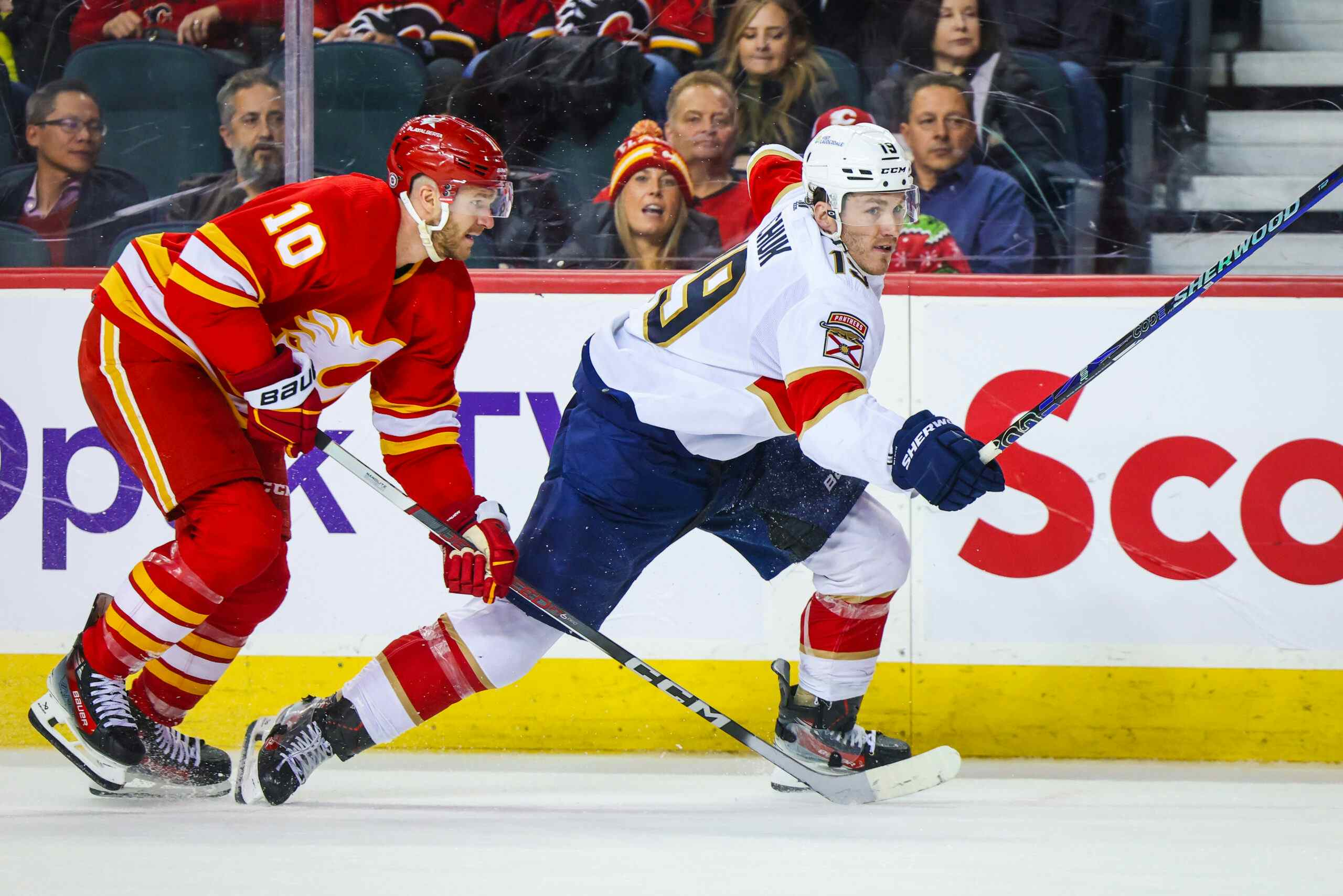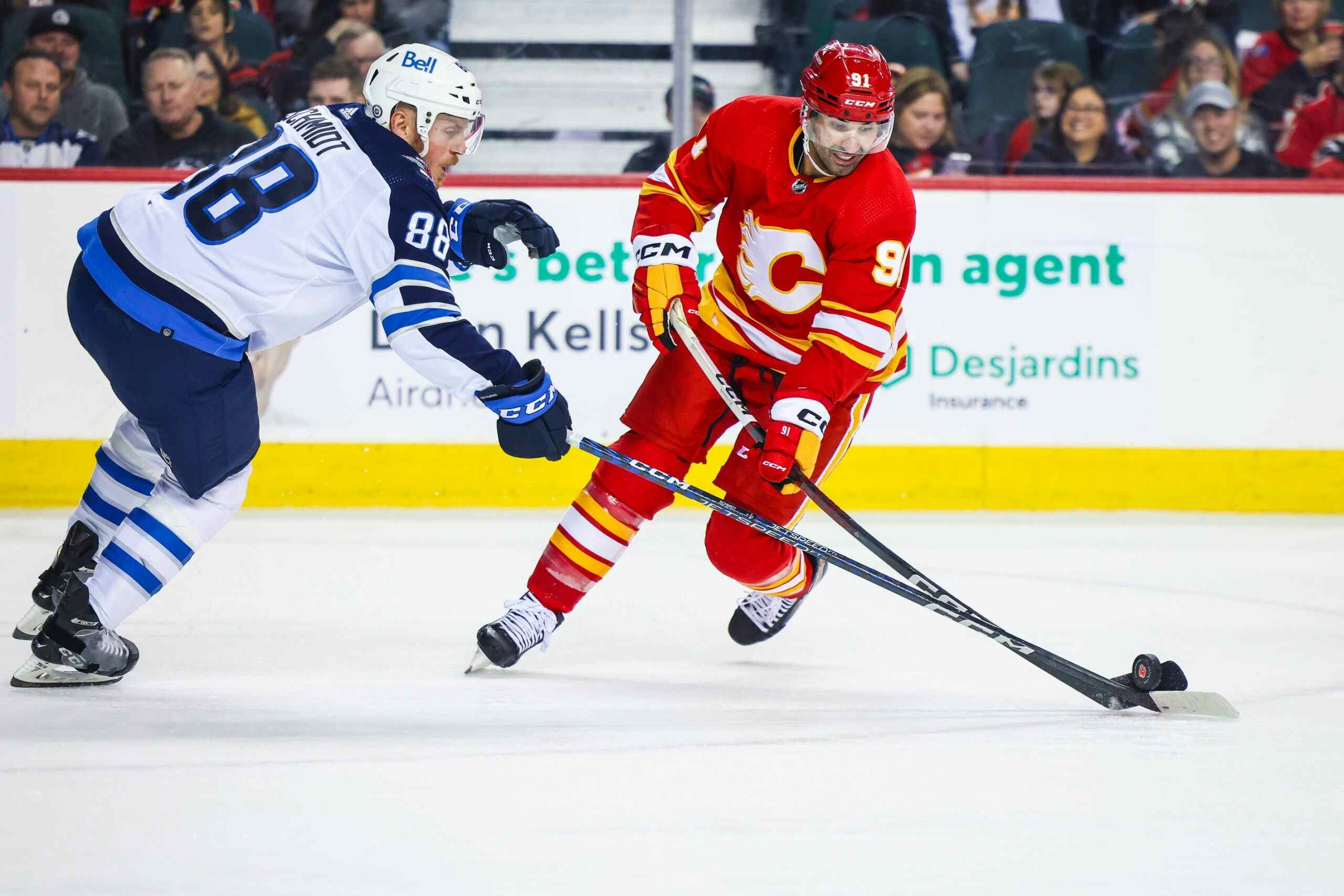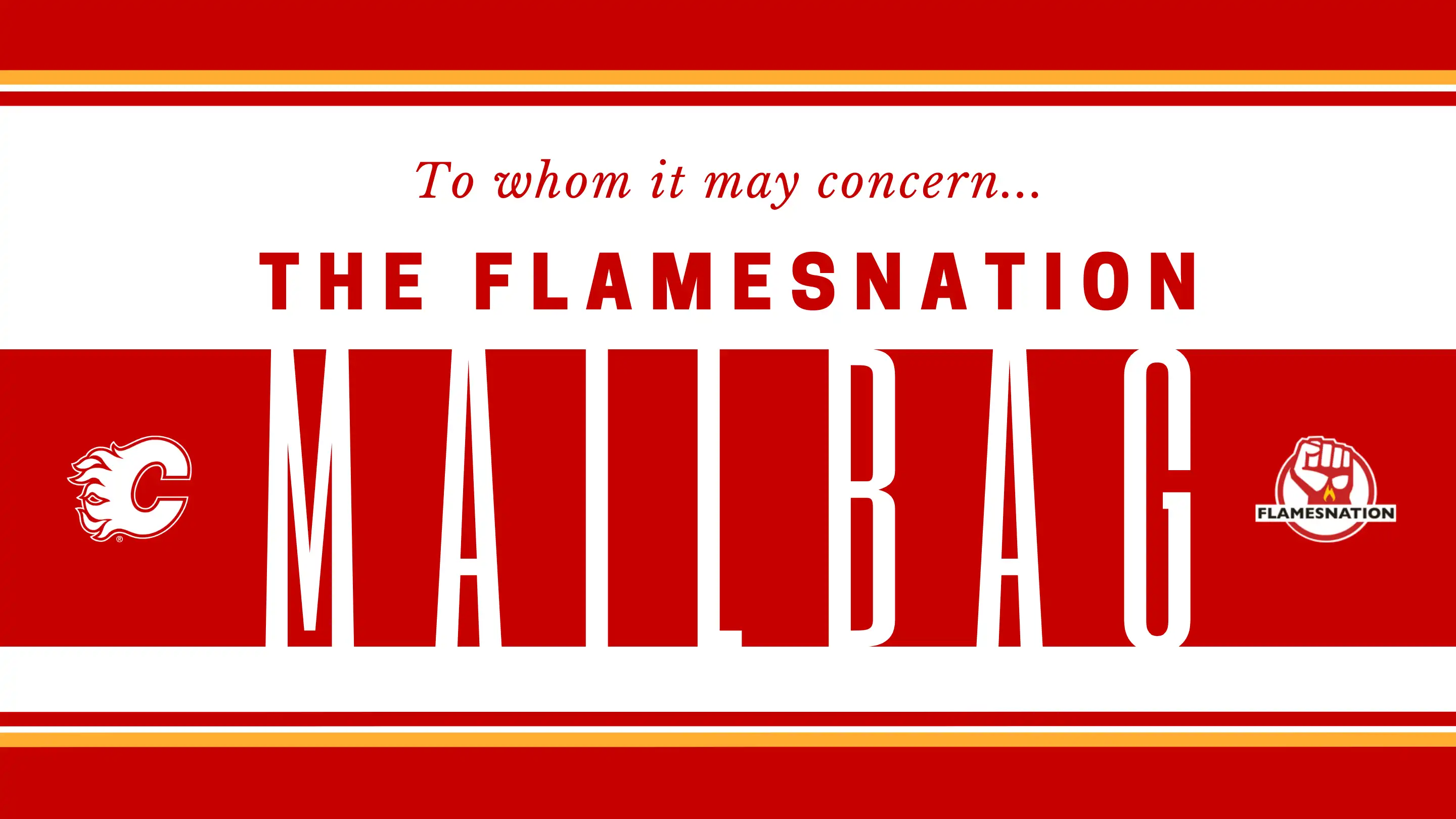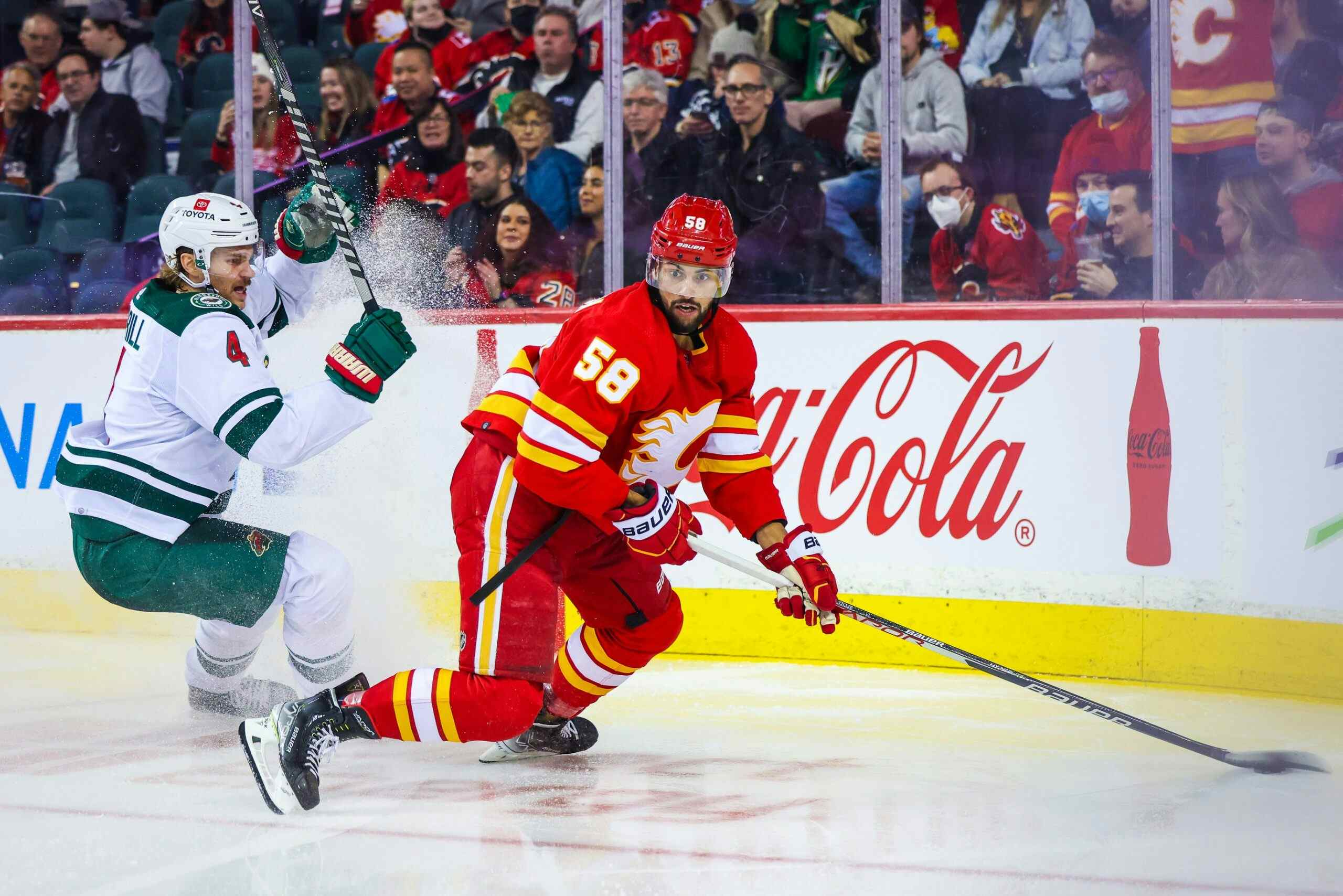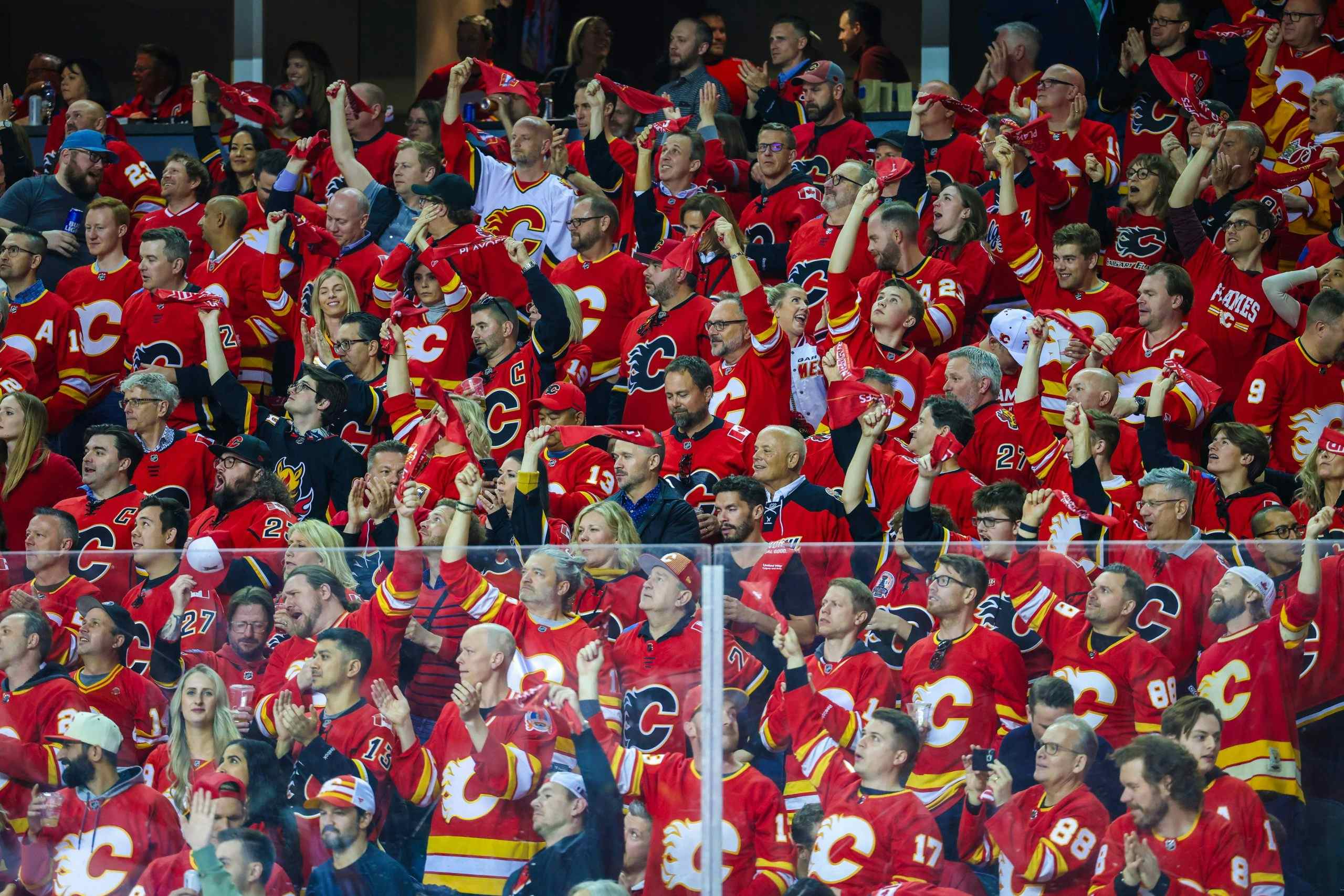Ducks 1, Flames 0 post-game embers: Garbage
By Ari Yanover
8 years ago
Photo Credit: Sergei Belski/USA TODAY Sports
The Anaheim Ducks are having a bad season. They’re at the bottom in one of the worst divisions in the NHL, they can’t score goals, and their goal differential (-20) is almost as bad as the Flames’ (-21). They’re a far, far cry away from the team they were last season.
Except when they play the Flames, apparently, when they turn into world beaters. Well, not really, but that game wasn’t as close as the 1-0 score made it seem, and the Ducks very much deserved the win. Shoutout to Karri Ramo for doing his best.
Some insanely low percentages
The Flames’ corsi in the second period, when Anaheim scored their goal, was 18.18%. At even strength it was 20.69%. That’s a special kind of abhorrent.
Really, the only time their possession was respectable was in the third period, when Calgary turned it on (because all Anaheim had to do was sit back and suppress, and it worked). They had six corsi events for in the second period. Not shots – they had three of those. Over the course of an entire 20 minutes, the Flames only put the puck in the direction of Anaheim’s net six times.
There are no words for just how truly bad that is.
It gets worse, though. In all situations, five Flames – all of who played at least 10 minutes – had CFs below 10%. When Markus Granlund, Matt Stajan, Lance Bouma, and Deryk Engelland were on the ice, the Flames had one single corsi event for. One.
With David Jones, they had zero. Over the course of an entire hockey game, Jones’ CF was 0.00%.
I don’t even know how that happens, and at least it probably won’t again, because Jones is definitely not that bad a player. He primarily skated on a line with Granlund and Sam Bennett, but at least Bennett was on the ice for five corsi events for. And he very, very clearly had a better game.
Play Sam Bennett
This one is just baffling to me. It’s been baffling as of late, but it was extra baffling last night.
Everyone was in agreement: Bennett had an awesome game against the Oilers. It might have been his best game ever. He didn’t score, but he did everything else: he created dangerous chances, he had some hard hits, he drew a penalty. He did really, really well.
What else does he have to do to get in the top six? He played 12:52 last night, seventh out of all forwards. He played just 21 seconds on the power play, which is an ever-continuing disgrace: he is one of the Flames’ most dynamic forwards, possibly the most dynamic after Johnny Gaudreau, and he’s getting skipped over for guys like Jiri Hudler and Joe Colborne who do not appear to have done a single thing to earn time with the extra man.
Bennett is hauling ass night in and night out and he’s not getting rewarded for it, and his team is probably suffering for lack of having him out there as much as he could be.
According to War on Ice, three Flames had high danger scoring chances. Gaudreau had four, and Ferland and Bennett had one apiece. Gaudreau had six scoring chances, Bennett was second with two. Gaudreau had seven individual corsi events, Bennett was second with three.
He creates. Bob Hartley seems to just move ice time around. It’s outrageous.
Play the kid. He’ll probably make you proud.
The Ryan Getzlaf matchup
Ryan Getzlaf is a good player. He may only have two goals this season – an empty netter and a five-on-three – but he’s still a good player. There are years and years of history we can draw on to prove this. He has to be taken seriously, and with Hartley controlling the matchups, it had to be Mikael Backlund against him all night.
Backlund needs to be the shutdown guy (and Michael Frolik’s absence hurts here, because he’s a great shutdown guy along with him). And Backlund was the centre Getzlaf saw the most. Over the course of 6:21 (even strength) minutes the two shared, Getzlaf posted a 33.33% CF.
But somehow, Getzlaf also ended up facing Markus Granlund, a sophomoric kid who has yet to establish himself as a surefire NHLer (though he seems to be trending that way), let alone shutdown option, for 5:02. He saw Granlund almost as much as he saw Backlund – and he posted a CF of 100.00% against him.
That can’t happen. You can’t let the opposing team’s top line centre see your green guy that often, and especially not when he’s dominating him that much.
The Joe Colborne experiment needs to end
It should have ended a while ago, but it’s been ongoing, and it seemingly won’t stop.
Colborne is a frustrating player. In one instance, he’ll do something amazing; in the very next, he’ll mess it up. All of the potential he has in that huge frame is so, so clear. If only he could just put it together…
… And then you remember he is going to turn 26 years old in a month. What we see is almost certainly what we are going to get. And what we see is bad.
It’s just bad. He’s just bad. There’s such a lack of awareness – letting Shawn Horcoff skate right on by him on his goal last night, for instance, or just kind of casually hanging out on the power play – the boneheaded turnovers, the knowledge that one amazing deke will be followed up by a rush to the Flames’ end of the ice for the other team.
He’s great in the shootout, the one element of the game where you don’t really need to be aware of your surroundings at all. Otherwise, it’s mistake after mistake after mistake, and as we saw last night, it cost his team. You can’t shoot in the shootout if you can’t even help your team get there to begin with.
He played 15:54 last night, fourth out of all forwards. In 10 of his past 12 games, he has played at least 15 minutes. In those 10 games, he has scored one goal (he also scored another in one of his two recent sub-15 minute games) and registered four assists. That’s .5 points per game, which isn’t bad, but everything he’s done outside of those six points has been brutal.
And yet, he continues to get top six minutes. He had 11 shifts after his lackadaisical effort on Horcoff’s goal where other players likely would have been benched.
He even played 1:01 on the power play. This season, Colborne has played 55:47 on the power play, the most on the Flames without registering a single point. It’s clearly not going to happen, and even if it does – how long will it take to get there? And will it have been worth it?
He is going to be 26 years old in a month. We know what he is by now. And at absolute best, he is not a top six forward.
Brandon Bollig was a non-factor
I come not to praise, nor do I come to bury.
Brandon Bollig played 9:20, the only Flame to not hit double digits. He had poor possession, but wasn’t the worst on the Flames. He didn’t take any penalties, so he didn’t have a negative impact, either. He was kind of just… there.
Which is both good and bad. It’s good because he didn’t cost his team; it’s bad because he didn’t do a thing to help his team win.
The lineup was disrupted to inject more size into it. The Anaheim Ducks are a bigger team, so Hartley wanted a bigger player available to him. The logic is sound enough.
Except… nothing was really done with it? As was oft pointed out throughout the broadcast, Gaudreau was taking a lot of abuse. He was probably the Flames’ most productive forward, again (or at least as productive as one can be in a shutout), despite the size differences. But two and two were never put together: if Gaudreau is getting roughed around regardless, then what good did it do to add Bollig to the lineup? He didn’t stop any of that from happening.
Nor should he have, because that would have meant playing him with Gaudreau, which would have been insane.
On surface level, Bollig in the lineup against Anaheim makes sense. Just one scratch below the surface, though, and it doesn’t. He was just there.
Being just there would have been fine if the rest of his team could have gotten anything going. Maybe Mason Raymond or Josh Jooris would have gotten something going.
Ending this on a decent note
I like Dougie Hamilton.
As the top defence pairing, of course T.J. Brodie and Mark Giordano played more than anybody else. After them, Kris Russell played 19:37; after him, Hamilton played 19:29. He played top four minutes, and there wasn’t a big gap in their ice time as there has been in the past.
He was, quite possibly, the most productive player on the Flames’ power play, at least leading the way with three individual corsi events for. He played 1:49 on the man advantage, but maybe that should go up, because Hamilton simply looks much more threatening on the power play than Dennis Wideman does. A top pairing unit of Brodie and Hamilton could not only be fortuitous now, but in the long run, considering the players’ ages.
He was also out there for that end of the game push with a 1:12 shift, and once again, he looked threatening back there. And that hit against Horcoff was a beautiful statement. I look forward to seeing his use continue to grow, and remain ever curious what it’ll look like after the trade deadline, when it’s possible some of the Flames’ other regular defencemen will no longer be around.
In a game in which nothing happened, he at least made it interesting.
Recent articles from Ari Yanover

